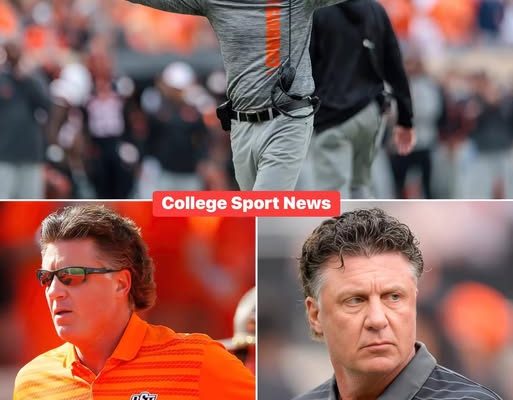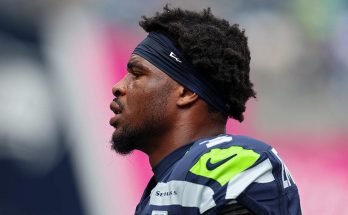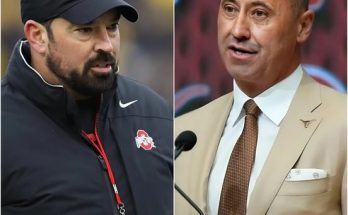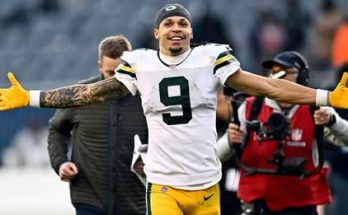Oklahoma State fans were left stunned, frustrated, and maybe even a little numb after what unfolded in Eugene this past Saturday night. A 69-3 defeat at the hands of the Oregon Ducks is not just a loss, not just a bad day on the field—it’s a historic collapse that will be remembered for years, and perhaps not in the way Cowboy faithful had hoped as this season began. Head coach Mike Gundy didn’t hide from the reality of the situation, facing the press with an unusual level of blunt accountability. “We tried to do too much,” he admitted, his words carrying the weight of not just a game gone wrong, but a program moment that could very well define the direction of this season. For Oklahoma State, the embarrassment isn’t only in the scoreline, but in what it represents: a team that came in with hope and was swiftly reminded just how punishing college football can be when you lose track of execution and overcomplicate the basics.
To understand just how monumental this collapse was, context matters. The 69-3 defeat was Oklahoma State’s worst loss since 1945, nearly 80 years of football washed away in a flood of Oregon touchdowns, big plays, and Cowboy mistakes. A new era of Big 12 football was supposed to present opportunities, fresh challenges, and perhaps some room for a storied program like OSU to make noise. Instead, they’ve stumbled out of the gate at 0-2, and now the path ahead feels less like one paved with optimism and more like a steep climb uphill with everyone watching. The Ducks didn’t just beat the Cowboys—they overwhelmed them, dominated them, and made them look like an outmatched team still searching for its identity.
Dillon Gabriel, Oregon’s veteran quarterback, wasted no time turning this game into a personal highlight reel. With 421 passing yards and five touchdown passes before halftime, Gabriel had OSU’s secondary running in circles. Every deep ball seemed to find its target, every drive ended in points, and before fans could even settle in, the scoreboard was lopsided at 45-3. The Ducks would finish with 638 total yards, while OSU could muster only 227. The contrast wasn’t just stark—it was painful. On one side, a team firing on all cylinders, on the other, a squad unraveling before its coach’s eyes.
If there was ever a night where everything that could go wrong did, this was it for Oklahoma State. Twelve penalties totaling 105 yards crippled what little momentum they tried to build. Turnovers piled up, with backup quarterback Zane Flores tossing two interceptions on his way to just 98 passing yards. Flores was forced into action with Alan Bowman sidelined, but even with that caveat, it was clear the Cowboys had no rhythm offensively. Each possession seemed to end either with a mistake, a stall, or a reminder that Oregon’s speed and power were just on another level.
What made Gundy’s postgame remarks resonate so much was not just the acceptance of responsibility, but the acknowledgment of how his own decisions played into the collapse. “It’s on me. We bit off more than we could chew schematically,” he said. For a coach who has spent nearly two decades in Stillwater, known for his confidence and sometimes defiance, this was an unusually humble confession. Gundy essentially admitted that his attempt to do too much—whether through complex schemes, ambitious game plans, or overestimating his players’ readiness—backfired completely. For fans, this honesty may sting, but it also signals that perhaps the Cowboys’ next steps will involve simplifying, regrouping, and trying to rediscover the fundamentals that made them competitive in the first place.
Of course, words only mean so much. Fans know this, and players feel it too. At 0-2, the Cowboys are staring down a must-win situation against Tulsa. On paper, it’s a game they should handle, but after what happened against Oregon, nothing feels guaranteed. Confidence has been shaken, and in college football, momentum is everything. The question now is how this team responds—not just in terms of wins and losses, but in attitude, fight, and resilience. Can the Cowboys put this behind them quickly, or will the humiliation linger and infect the rest of the season?
The concern isn’t only about this year either. Losses of this magnitude can leave scars on recruiting, on program reputation, and on fan trust. High school prospects watching that game saw a team disorganized, overmatched, and outcoached. Opponents in the Big 12 saw vulnerabilities to exploit. Longtime supporters saw a team far removed from the sharp, high-flying Cowboys offenses of old. This isn’t just one bad game—it’s a reality check that forces everyone around the program to ask tough questions.
And yet, football is nothing if not a sport of redemption opportunities. Every team, even the ones with championship aspirations, suffers setbacks. Sometimes they’re minor, sometimes they’re catastrophic. What separates resilient programs from those that spiral is how they handle the aftermath. Mike Gundy has always been a steady presence in Stillwater, and perhaps his willingness to shoulder the blame is the first step toward rallying his locker room. By admitting fault, he takes pressure off his players, sending the message that they’re not being thrown under the bus. But make no mistake—those same players now bear the responsibility of proving they can respond.
For fans, the emotions are mixed. Some are angry, others disappointed, many simply numb from the shock of the scoreboard. But all share a stake in what happens next. This isn’t just about one man or one game, it’s about an entire program’s resilience. Will this season become a cautionary tale of failure, or can Oklahoma State turn it into a story of revival? That’s where the engagement comes in.
If you’re reading this, whether you’ve been following the Cowboys for decades or just tuned in to witness the disaster against Oregon, your perspective matters. What do you think went wrong beyond what Gundy admitted? Was it truly about trying to do too much, or was it about a deeper lack of talent, discipline, or preparation? Do you believe this team can still make noise in the Big 12, or is the writing on the wall for a long, frustrating year?
Engagement in moments like these isn’t just about venting frustration—it’s about creating dialogue among fans who care deeply about their program. Commenting, debating, and sharing your perspective is how the community processes a loss this crushing. Some may call for changes on the coaching staff, others may argue for patience. Some may already be looking toward recruiting and the future, while others just want to see this team show some fight against Tulsa. Every viewpoint adds to the broader conversation of what it means to support Oklahoma State through thick and thin.
The beauty of college football, if there is any silver lining here, is that the story is never finished in one week. Seasons can turn around. Players can grow. Coaches can adjust. And sometimes, the darkest nights lead to the brightest mornings. Maybe, just maybe, this humiliation will serve as the spark that forces Oklahoma State to simplify, refocus, and rediscover the grit that defines successful programs. Or perhaps it’s a sign of deeper issues that will take years to fix. That’s the reality fans are grappling with today.
So let’s hear from you. Was Mike Gundy right to put the blame squarely on himself, or does this loss expose bigger problems in Stillwater? Can the Cowboys bounce back quickly, or is this the start of a season that could unravel further? Your thoughts, frustrations, and even your hopes are all part of this story. Drop your comments, debate with fellow fans, and let’s turn this painful night into a conversation that might just shape the future of Oklahoma State football.
Because in the end, while the scoreboard reads 69-3, the real score is written by how a program, its fans, and its leaders respond. This isn’t just Gundy’s burden, or the players’ task—it’s a collective moment for everyone tied to Oklahoma State. The humiliation is real, but so too is the chance to learn from it. Now it’s your turn—what do you make of this collapse, and where do the Cowboys go from here?



